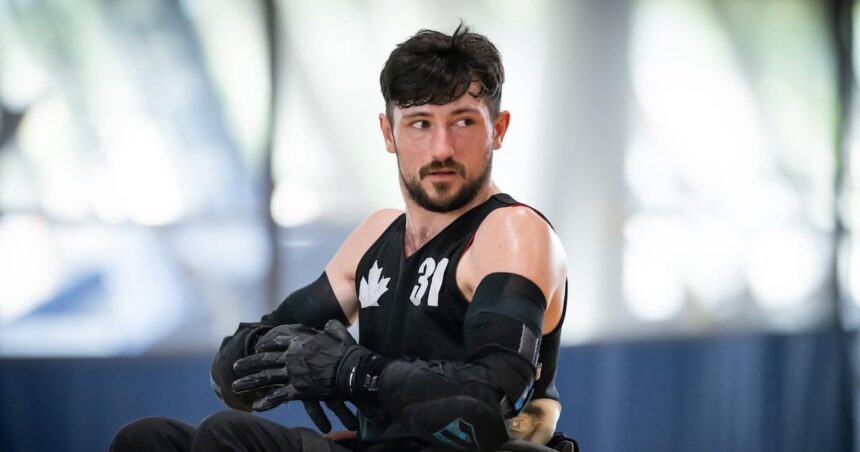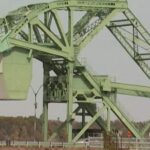In the dimly lit arena of international wheelchair rugby, Windsor native Mike Whitehead has emerged as the beating heart of Team Canada’s resurgence. Last weekend, as sweat glistened on foreheads and wheelchair spokes flashed under arena lights, Whitehead’s veteran presence helped guide Canada to a crucial qualification spot for the 2025 World Championships.
The journey wasn’t straightforward. Facing formidable opponents in the Americas Championship in Bogotá, Colombia, Team Canada demonstrated remarkable resilience, securing their place with a commanding performance that spoke volumes about their determination and tactical prowess.
“There’s something profoundly different about representing your country on the international stage,” Whitehead told me during our conversation following their return. “It’s not just about the competition—it’s about carrying the weight of a nation’s hopes on your shoulders.”
At 38, Whitehead represents the seasoned core of a Canadian squad blending experience with emerging talent. His path to wheelchair rugby began following a motorcycle accident at 19 that left him with incomplete quadriplegia. What started as rehabilitation quickly evolved into passion, then professional pursuit.
The qualification tournament in Colombia tested not only physical limits but mental fortitude. Playing in unfamiliar conditions—higher altitude, different humidity—required adaptations that only veterans like Whitehead could navigate confidently. The team’s performance, particularly their tactical discipline in crucial moments, suggests Canada has found their rhythm at precisely the right moment in the competitive cycle.
“The international wheelchair rugby landscape has transformed dramatically in recent years,” explains sports analyst Marie Deschamps, who has followed Paralympic sports for over a decade. “Traditional powerhouses like Australia and the United States now face legitimate challenges from nations investing heavily in adaptive sports programs. Canada’s qualification represents their commitment to remaining relevant at the highest level.”
What makes wheelchair rugby—once colloquially known as “murderball”—so compelling is its unfiltered intensity. The sport demands not just upper body strength and wheelchair control, but strategic thinking that rivals chess. Players must simultaneously execute offensive plays while anticipating defensive countermoves in a kinetic environment where split-second decisions determine outcomes.
For Windsor, Whitehead’s continued excellence represents something beyond sports achievement. His journey embodies the resilient spirit of a city that has weathered economic transitions and found new identities. As manufacturing has evolved, Windsor has increasingly embraced its role as an incubator for diverse talents—including Paralympic athletes who redefine possibilities.
The qualification tournament also highlighted evolving narratives in Paralympic sports. No longer relegated to human interest stories, these athletes command attention for their athletic achievements first. The technical sophistication of wheelchair rugby—with its specialized equipment, tactical complexity, and physical demands—has elevated the sport to must-watch status for sports enthusiasts regardless of previous exposure.
“What we’re seeing is the normalization of excellence in Paralympic sport,” notes disability rights advocate and sports commentator Jamie Collins. “Athletes like Whitehead aren’t defined by inspirational narratives but by their performance metrics, tactical contributions, and competitive edge.”
Looking ahead to the 2025 World Championships, Team Canada faces intensified preparation schedules. Training camps, nutritional programs, and equipment refinements will dominate the coming months as they position themselves for podium contention. For Whitehead, this may represent one of his final opportunities to secure a world championship medal—a achievement that would crown an already distinguished career.
The qualification also brings welcome attention to adaptive sports programs across Canada, particularly in regions like Windsor-Essex where community initiatives have created pathways for athletes with disabilities. These grassroots efforts directly connect to international success, creating a pipeline of talent that sustains national team programs.
As Canada prepares for the 2025 campaign, the conversation inevitably turns to legacy. For athletes like Whitehead, competitive achievements matter deeply, but equally important is the foundation they establish for future generations. Each international competition becomes an opportunity to normalize excellence in Paralympic sport while inspiring newcomers to discover wheelchair rugby’s unique combination of strategy, speed, and raw determination.
In a sporting landscape often dominated by professional leagues and commercial interests, Whitehead and Team Canada remind us that some of the most compelling athletic narratives unfold away from the spotlight—until moments like these qualification tournaments force us to pay attention. The question now becomes not whether Canada belongs among wheelchair rugby’s elite, but whether they can translate qualification momentum into championship contention when the world’s best converge in 2025.























